Meet the Ugandan Designer Godfrey Katende
„I want to challenge the unsustainable practices of the modern fashion industry and reframe contemporary perceptions of African heritage”
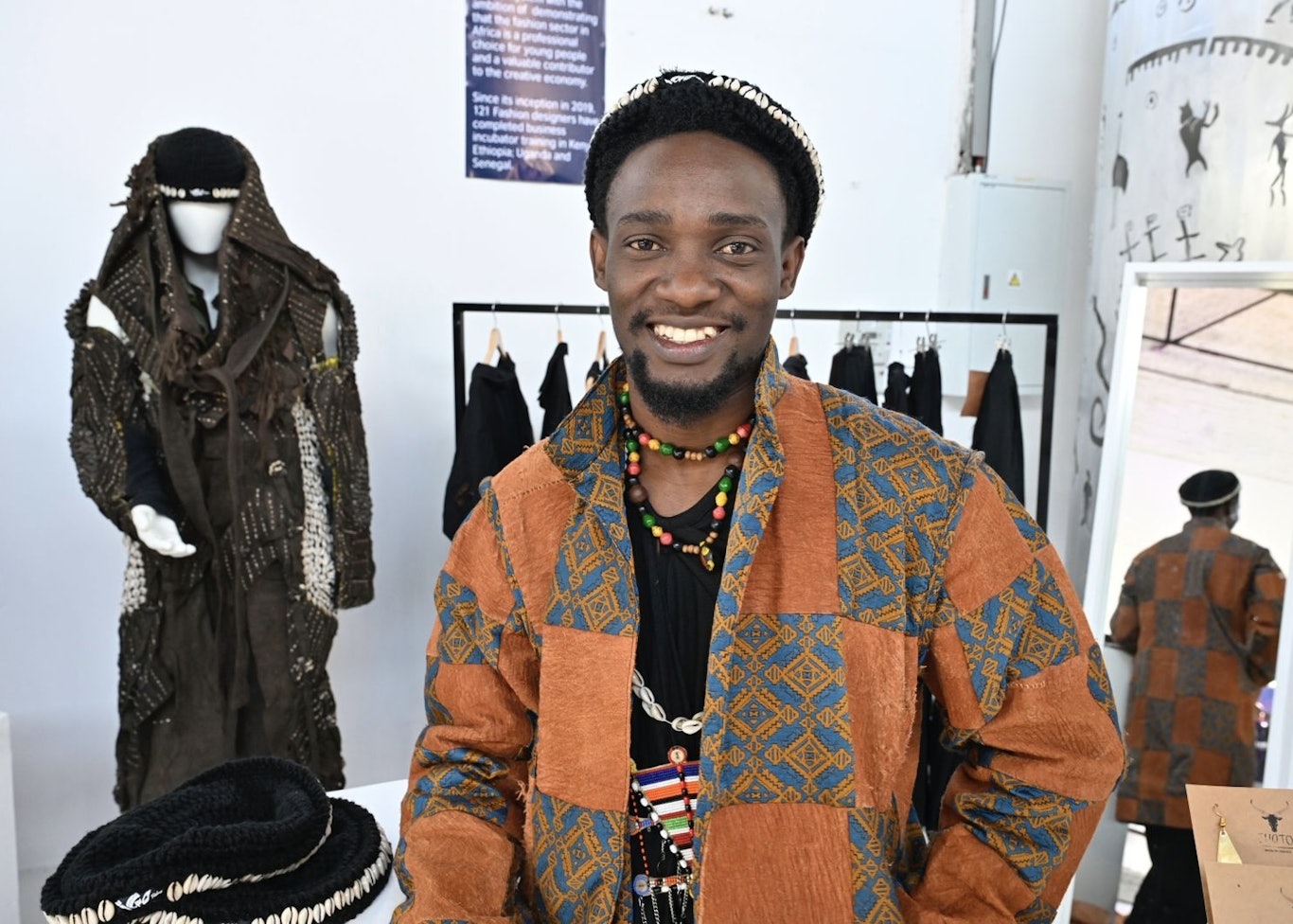
© IGC Fashion
Ich lernte Godfrey im Dezember 2024 in Ugandas Hauptstadt Kampala kennen, er hat für uns eine Slow Fashion Tour zusammengestellt. Wir haben den Owino Secondhand Market besucht, einiges über die Materialien Banana Fiber und Bark Cloth erfahren und Godfreys Design-Studio gesehen. Die Tour war ein Erlebnis. Godfrey ist Designer und Koordinator von Fashion Revolution Uganda. Vielleicht habt ihr das Interview mit ihm vor einiger Zeit gelesen? Da sprach er über die Herausforderung, Fashion Revolution in Uganda aufzubauen. Heute geht es vor allem um seine Arbeit als Designer, mit der er für Uganda neue Wege geht, indem er traditionellen Materialien mehr Sichtbarkeit gibt und nachhaltige Produktionsweisen propagiert. Godfrey ist am 14. April (virtueller) Gast bei Fashion For Future Bolzano. In einem Talk mit der Fashion-Aktivistin Lavinia Muth werden sich die beiden u. a. über den nicht weichenden kolonialen Einfluss auf die textilen Lieferketten und die daraus resultierenden sozialen und ökologischen Probleme unterhalten.
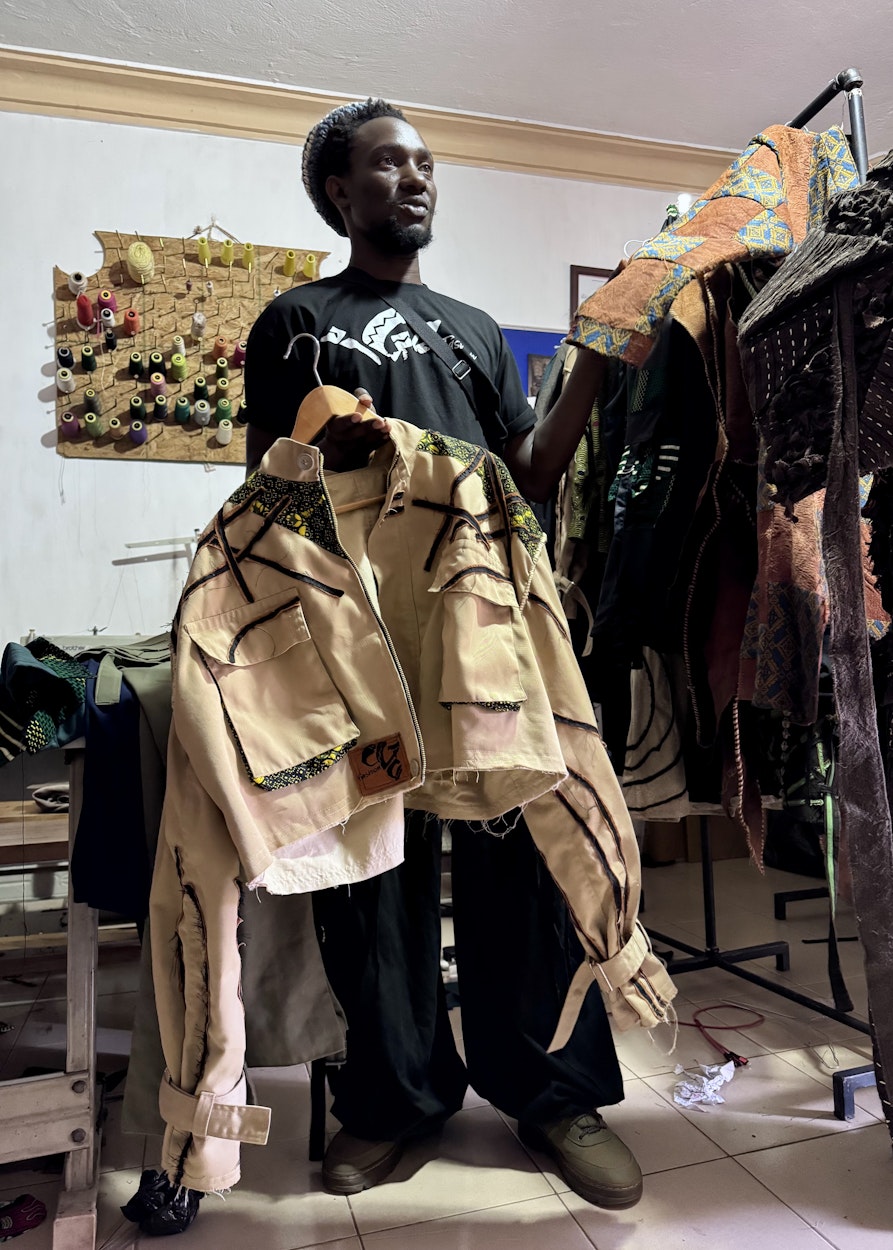
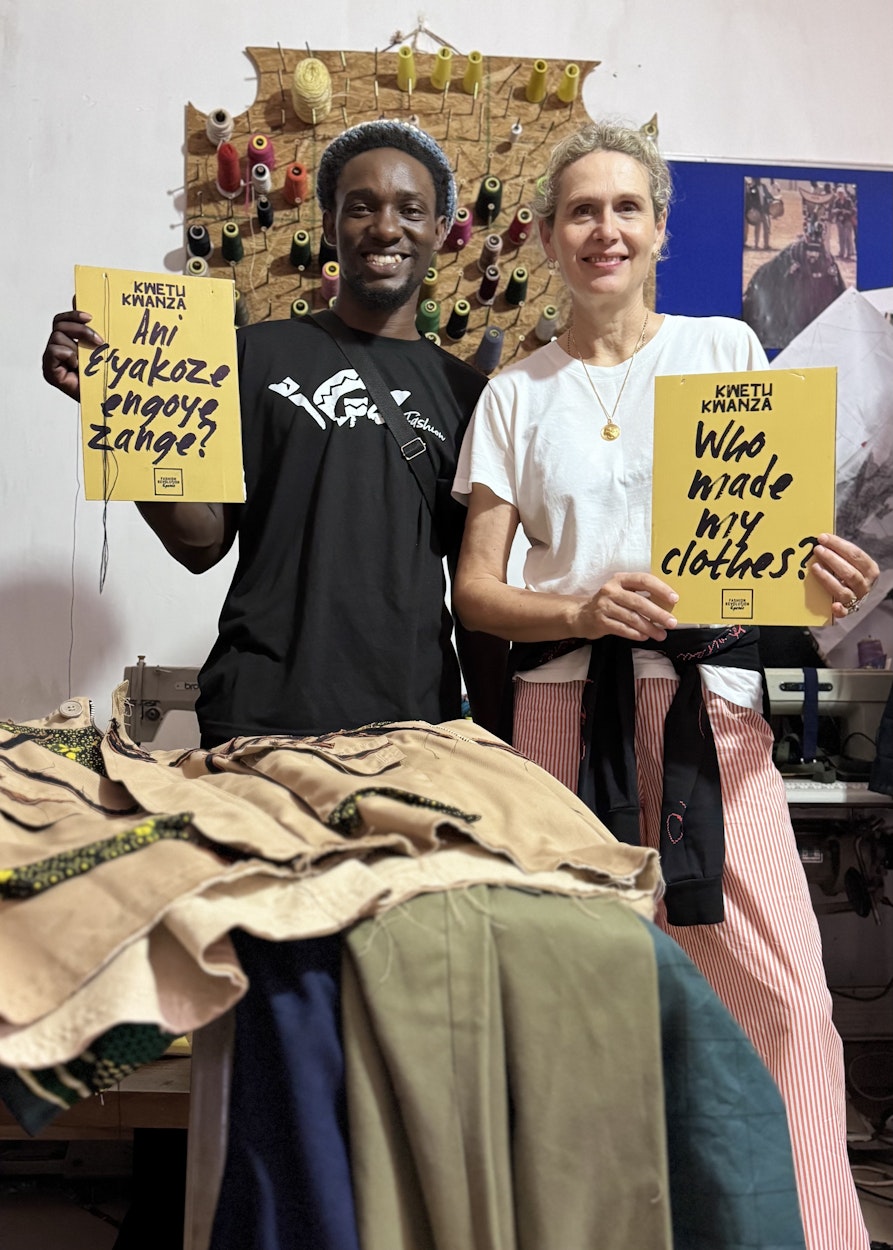
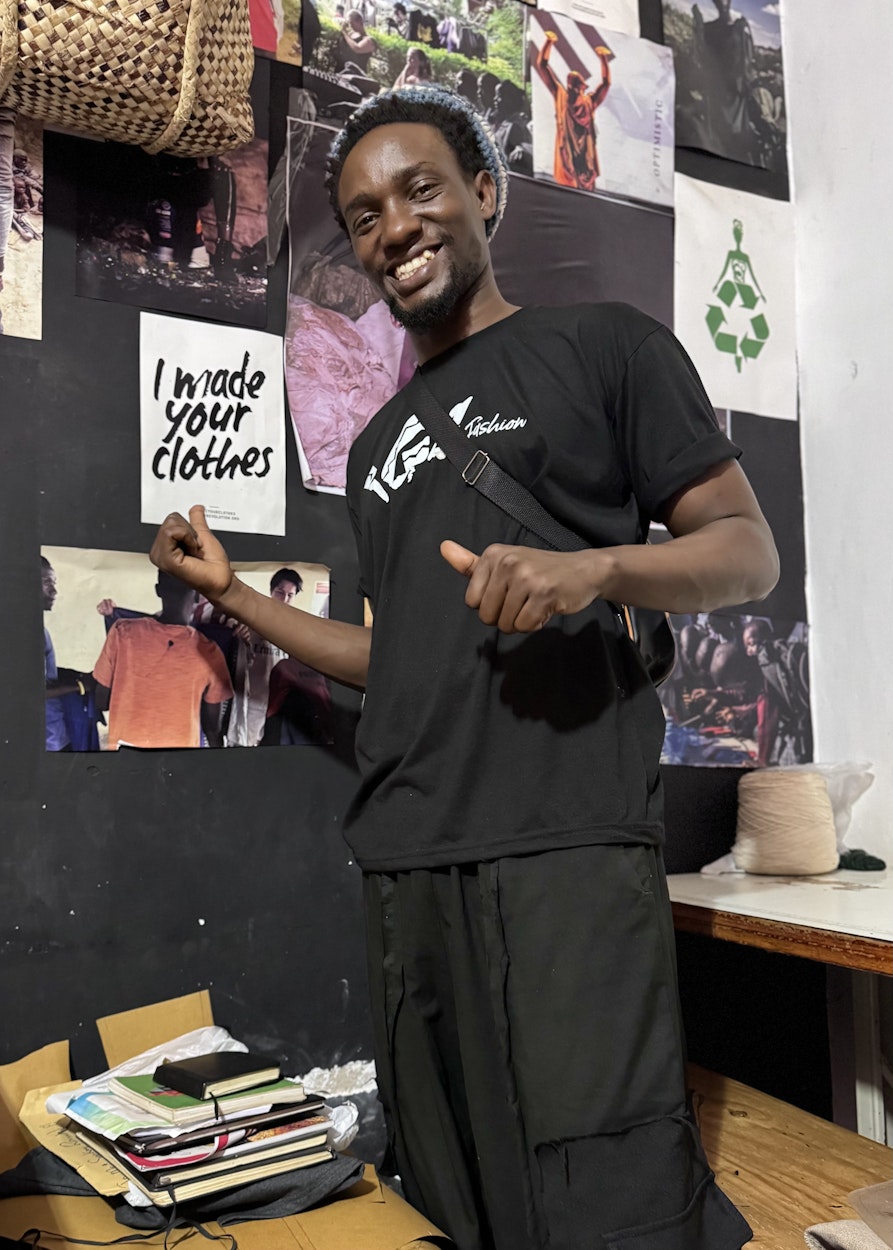
Godfrey Katendes Label heißt IGC Fashion, die Buchstaben stehen für Ibrahima and Godfrey’s community fashion. Community Building ist einer der zentralen Aspekte seiner Design-Arbeit. Seit 2017 organisiert IGC Fashion verschiedene Community Events, sogenannte Cyphers und Workshops, bei denen die Designer Kindern und Erwachsenen zeigen, wie man schneidert, designt und repariert.
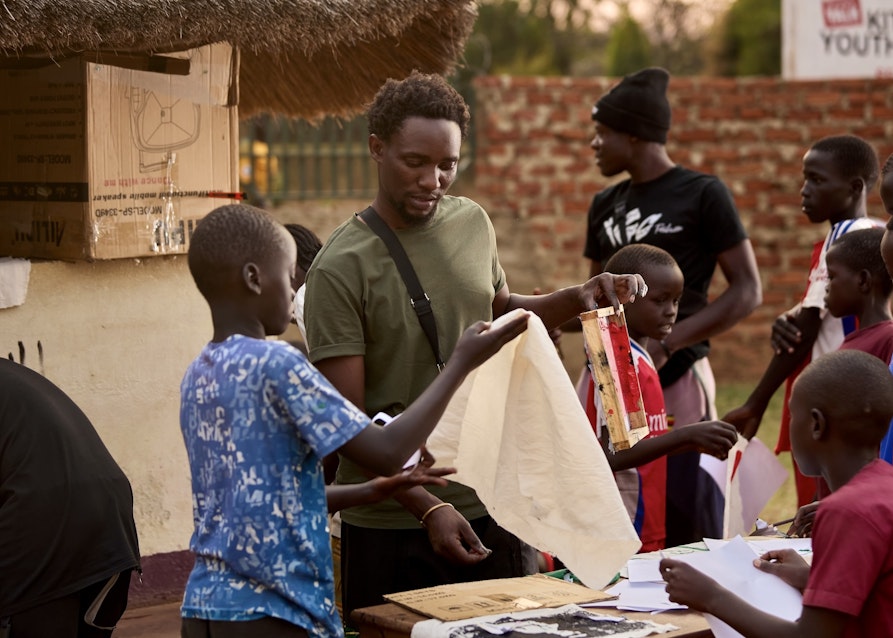
Godfrey, what brought you to fashion, to fashion design? You have done other things before...
I always wanted to dress well growing up and as a child I couldn't afford to buy clothes, but in the back of my mind I wanted to be able to make clothes that fit me. In my last year of school holidays, like any other young person I started looking for things that I could do to make money to sustain myself, also to contribute to the home. At that time I was into other creative expressions like breakdancing, but that wasn't that financially sustainable for me, so I added fashion. Then I started selling and showcasing my clothes in the hip hop community in Uganda.
How would you describe your design style?
My designs are street, afro future-avantgarde fashion.
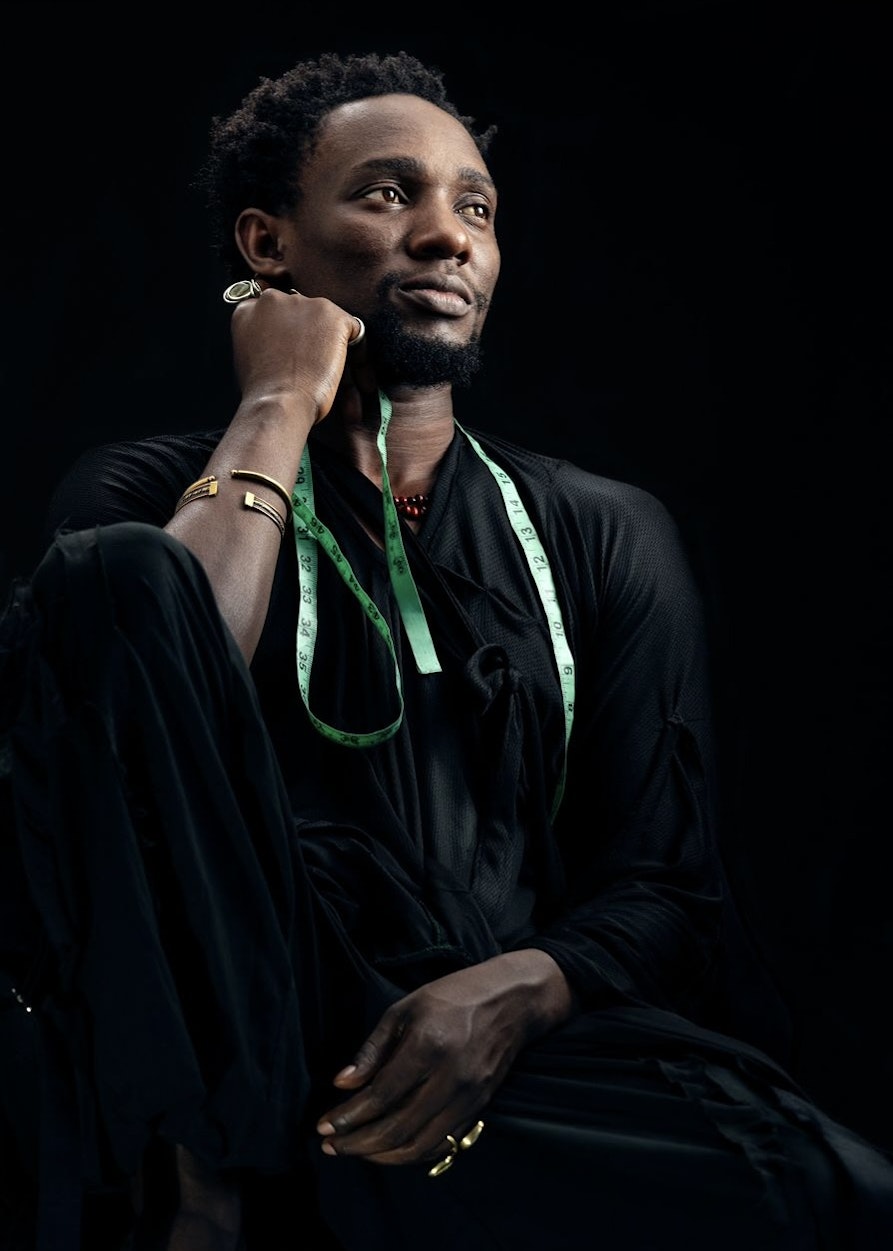
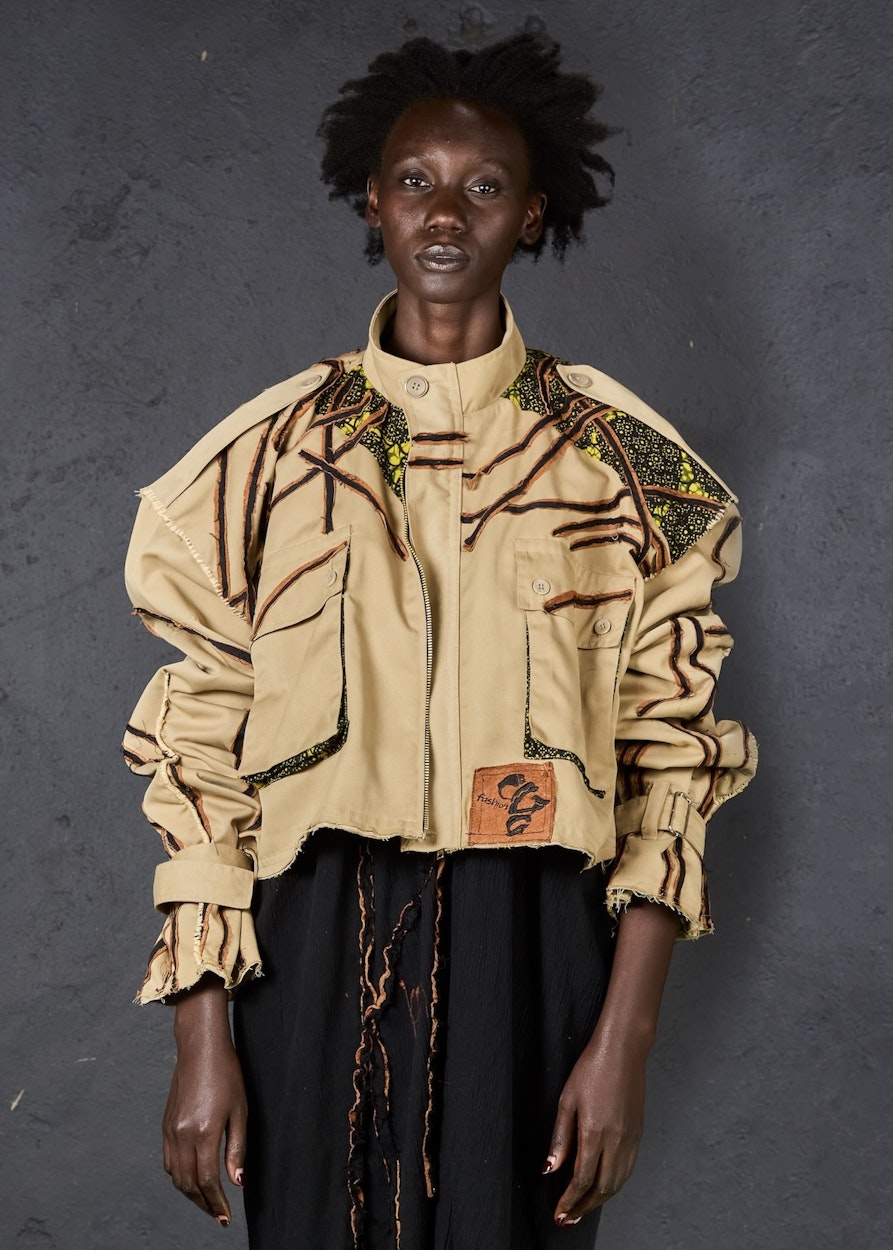
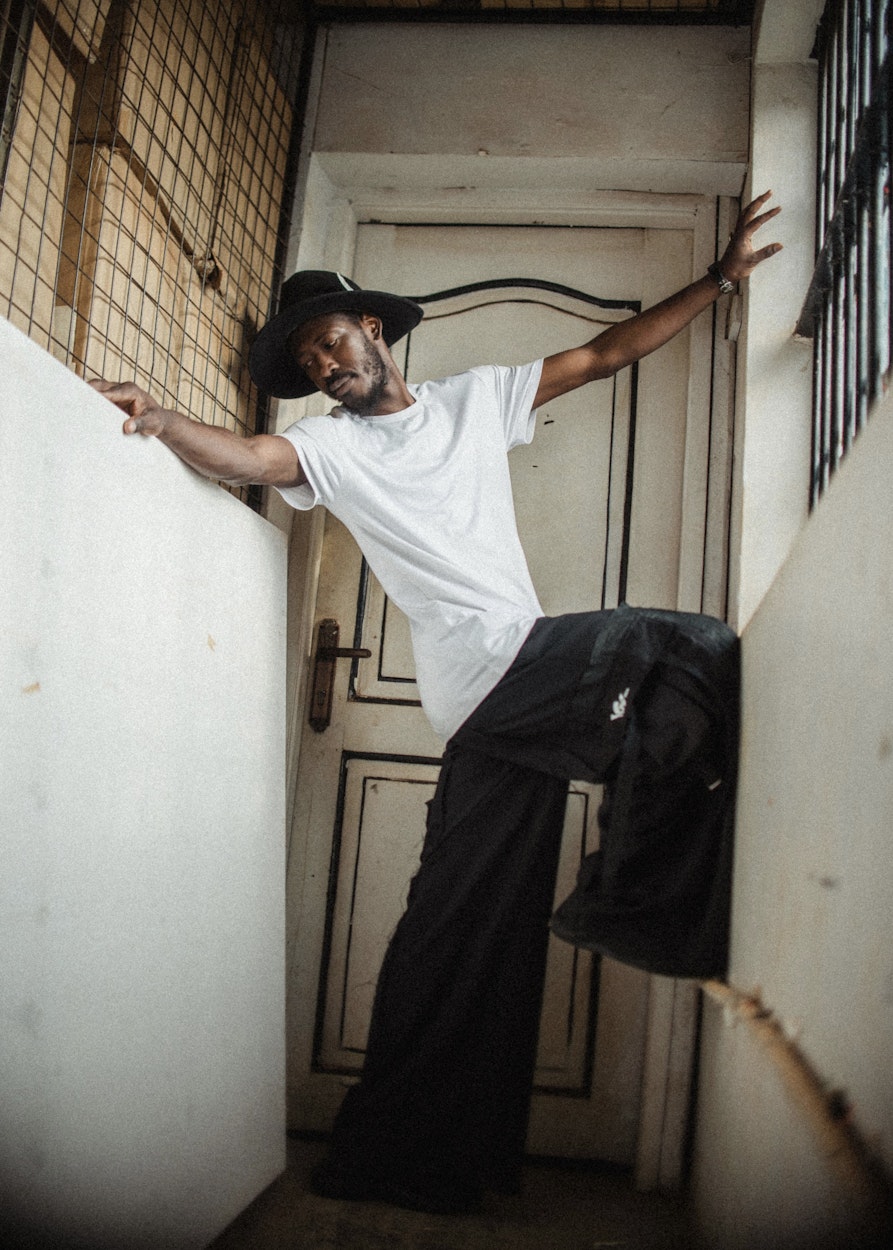
What inspires you?
I am inspired by imagined scenarios of what the art of ancient African fashion might look like when combined with modern urban architecture and the evolving futuristic feel around us. My work is inspired by African tradition, heritage and culture, combining these elements with a unique, forward-thinking design aesthetic to create garments that are moving, breathing pieces of sculptural art. I use a combination of 99% natural and indigenous materials such as Lubugo (bark cloth), Nsimbi (cowrie shells) and Obuso (raffia) with upcycled and secondhand fabrics to challenge the unsustainable practices of the modern fashion industry and reframe contemporary perceptions of African heritage.
You work with traditional materials, how is that received?
The majority of the Ugandan community see these materials as evil or satanic – they carry a massive stigma even though they were once glorified materials. This is what my fashion and work addresses, to remind people and challenge the colonial influence that has been placed on these materials.
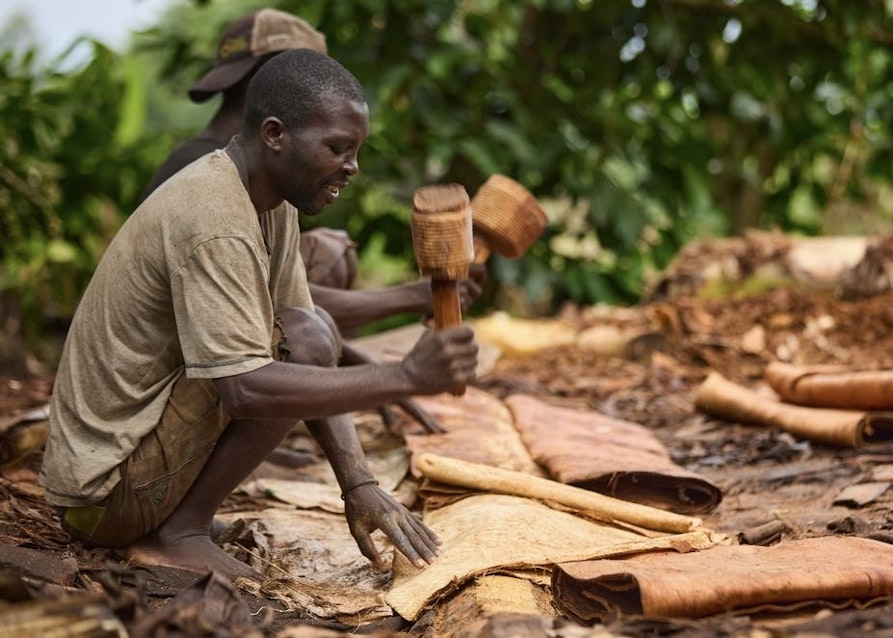
My work runs on three core principles. Culture – by championing the use of indigenous materials, IGC is honouring Ugandan and African tradition, reversing historical stigmatisation and revealing unwritten histories of culture. Environment – all our products are sourced and manufactured locally, using 99% natural or upcycled materials, and we run several campaigns on sustainable fashion with other designers and brands. Social – my work is community-based. With a deep understanding of local challenges, we use the majority of our profits to address the key economic and gender issues affecting the wellbeing of Ugandan society through education, employment and campaigning.
How difficult is it to set up and run a slow fashion business in Kampala, Uganda?
Government policy is not so favorable, slow fashion is completely new, for someone to buy an upcycled garment you have to educate a lot, otherwise there is a bias of people buying old clothes. Access to materials like 100% cotton is difficult, these materials are available in the country but they are directly exported with no access for local designers. And there is a negative attitude towards the products made by the citizens.
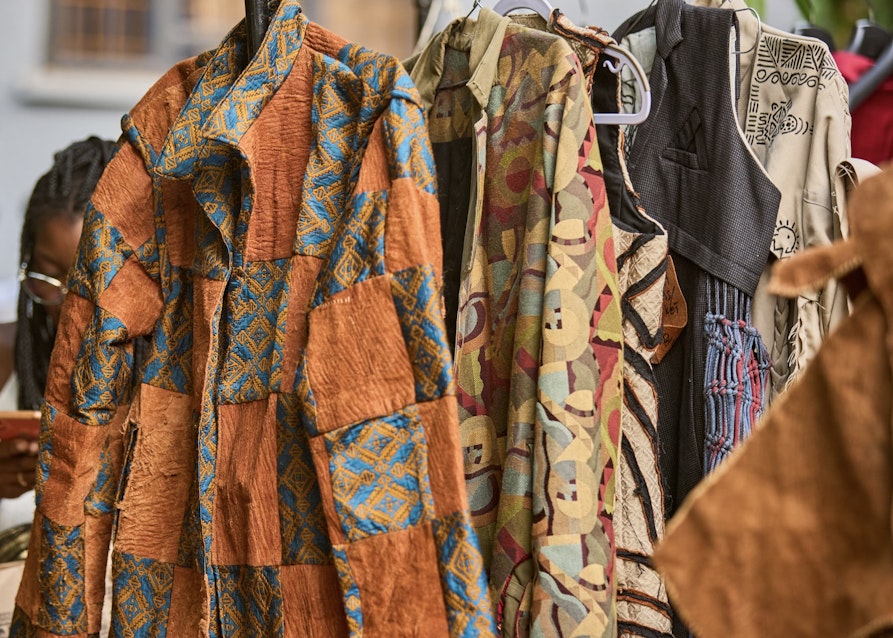
You are the Coordinator of Fashion Revolution Uganda and organize community events. What do you want to build here?
We want to build a Uganda that is aware of the impact of fashion on the environment. We want to create this awareness starting with policy makers, consumers, fashion schools, designers and brands so that they know the dangers of fashion and what they can do in their capacity to reduce these effects. Because in Uganda this awareness is so new and almost nobody is aware of it.
What are the next steps?
To create a residency space where fashion designers from Ugandan communities and beyond can access knowledge of indigenous materials and craft techniques from Uganda. As well as refining their design techniques and drawing inspiration from African heritage and culture. We want to create a podcast to bring to light the untold values around the bark cloth and the mutuba tree – spiritually, socially, traditionally and ethically. Ultimately, a future for IGC is one where Uganda’s rich cultural heritage, ecological wisdom and creative talent come together to create a fashion industry that not only beautifully adorns individuals, but also nurtures communities, preserves ecosystems and authentically tells Uganda’s story to the world.
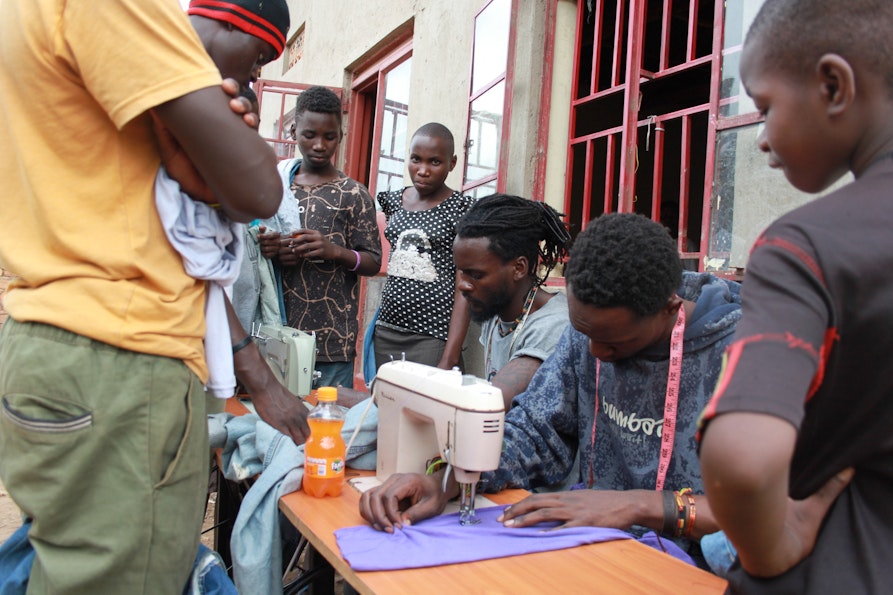
Godfrey Katende ist gemeinsam mit Lavinia Muth bei Fashion For Future Bolzano zu Gast. Am 14. April ab 18 Uhr im Waag Haus. Unbedingt hinkommen!
Supported by Kauri Store (M), Oscalito (L) und meiner Freundin Kristin. Wenn ihr diesen Blog auch unterstützen möchtet, gibt’s hier alle Infos.